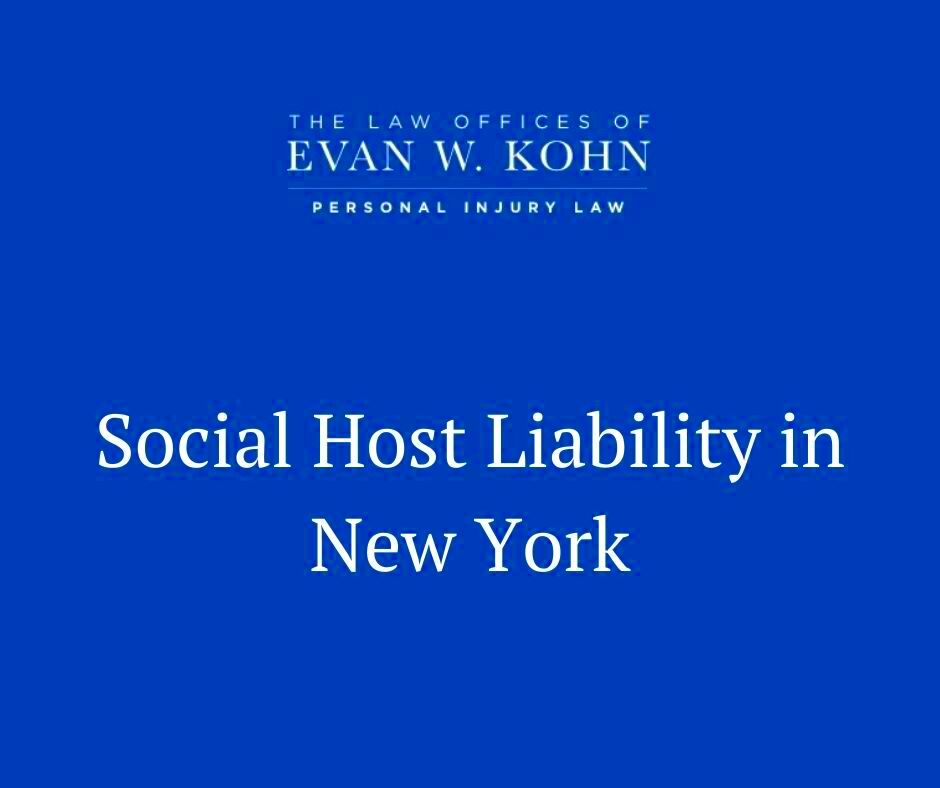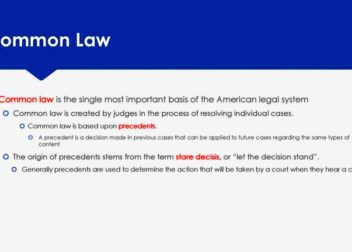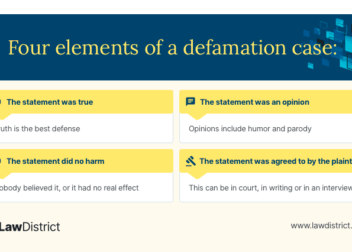How New York’s Social Host Law Affects Parties and Gatherings
Understanding Your Responsibilities as a Host

Recall the recent party you organized. It’s enjoyable until you realize that your responsibilities go beyond just ensuring the snacks and beverages are abundant. In New York hosting comes with legal obligations due to the Social Host Law. This implies that you might be held liable if underage attendees drink alcohol at your event even if you didn’t directly serve them a beverage.
Here are some tasks that you should remember to take care of:
- Know who’s drinking: Keep an eye on your guests, especially if there are people under 21.
- Set boundaries: Make it clear that underage drinking is not allowed at your event. It may feel awkward, but it’s necessary.
- Limit access to alcohol: Keep alcohol in a controlled area to avoid minors getting their hands on it without your knowledge.
Throwing a party can be a blast, but it’s important to stay on your toes. There was this one time I organized a gathering thinking I had everything sorted out. Little did I know that a friends younger sibling had discreetly brought in some drinks. It was a valuable lesson in being more cautious.
How the Law Applies to Underage Drinking

The Social Host Law in New York treats underage drinking seriously. If you host an event and underage guests consume alcohol you could face penalties or even legal repercussions. This applies even if you didn’t personally serve the drinks as the law can still hold you responsible.
Here’s where it gets tricky. You might think, “I didn’t give them the alcohol, so I’m safe,” but the law looks at whether you had knowledge of the drinking or if you allowed it to happen under your roof. If underage drinking occurs, and you don’t take steps to stop it, you could be in trouble.
This legislation aims to safeguard minors and avert negative consequences such as accidents, altercations or more severe incidents. I recall a tale about a neighbor who found themselves facing issues with the law after a teenage party guest departed intoxicated and was involved in an accident. It served as a poignant reminder that even well intentions can have unexpected outcomes if one is not cautious.
To steer clear of these problems make sure to remain watchful and step in when necessary. While it may feel awkward at times it’s preferable to experience a moment rather than deal with a potentially disastrous situation.
Consequences for Violating the Social Host Law
It’s tempting to assume that everything will go smoothly during a casual gathering. However if you’re not mindful of New Yorks Social Host Law things can take a turn for the worse quicker than you expect. Breaking this law can lead to serious repercussions and it’s not merely a matter of receiving a warning. If underage drinking occurs at your event even if it wasn’t intentional the law may hold you accountable.
Let’s talk about what can happen:
- Fines: If you’re found guilty of allowing underage drinking at your event, you could be hit with fines. It starts small, but repeated violations can lead to steeper penalties.
- Criminal Charges: Yes, it can get to that point. In some cases, hosts have faced misdemeanor charges, especially if someone gets hurt or worse after consuming alcohol.
- Civil Lawsuits: If a guest leaves your party and causes harm to themselves or others, you might be facing more than just fines—you could end up in a lawsuit. This is especially true if an accident or injury occurs because of intoxication.
Steps Hosts Can Take to Protect Themselves Legally
Throwing a bash is all about having a good time but nobody wants that enjoyment to come with a potential legal headache. Fortunately you can take measures to safeguard yourself while still being the center of attention at the gathering. The Social Host Law might sound daunting but exercising caution is essential.
Here are some tips to help you stay within the legal boundaries.
- Clear Communication: Let your guests know upfront that underage drinking won’t be tolerated. It might feel awkward, but it’s necessary. It helps set the right tone from the start.
- Supervision: Keep an eye on your party, especially if you know younger guests will be around. Don’t assume everyone’s behaving—check in from time to time.
- Secure Alcohol: Keep alcohol in a designated area and monitor access to it. A lot of trouble can be avoided if underage guests don’t have easy access to drinks.
- Be Ready to Act: If you see someone under 21 drinking, step in. It’s better to confront the issue head-on than to deal with the aftermath.
I recall an occasion when my cousin organized a little gathering and she really made an effort to keep everything in order. It wasn’t a walk in the park for her to be the “host” but ultimately it paid off. Everyone enjoyed themselves thoroughly and she didn’t have to stress about anything going awry.
In essence, its wiser to prevent problems rather than dealing with their aftermath. Taking some measures can significantly help safeguard you from potential legal troubles.
How the Law Impacts Different Types of Gatherings
Let’s discuss the impact of this law on various types of get togethers. You may assume that the Social Host Law is only relevant for large and rowdy celebrations but that’s not true. Even cozy gatherings can get you into trouble if you’re not cautious.
Consider these scenarios:
- Family Events: Hosting a family barbecue? You might not think twice about offering a beer to your teenage cousin, but the law is watching. Even in a family setting, underage drinking is still your responsibility.
- House Parties: Whether it’s a birthday party or a casual hangout, if there’s alcohol and underage guests, the stakes are high. It doesn’t matter if it’s a small group—what happens under your roof can become your legal problem.
- Holiday Gatherings: Holidays are often a time when people relax, and alcohol flows freely. But remember, if minors are present, you’ve got to be on alert. The holiday cheer won’t protect you from the law.
I remember an occasion when a friend organized a low key dinner gathering, believing there was no danger in having just close friends and family over. However when an underage attendee was discovered with a drink it escalated into a situation that was more significant than anyone had anticipated. This serves as a reminder that even seemingly innocent get togethers can bring about unexpected challenges.
Regardless of the type of event you’re organizing it’s important to remember the Social Host Law. It’s wiser to err on the side of caution than to have regrets down the line.
What Hosts Should Know About Exceptions and Defenses
You may be curious if there are any loopholes in the Social Host Law. After all every law has its nuances, right? Although New Yorks Social Host Law is rigid there are a few justifications you can lean on in specific circumstances. However I must caution you these aren’t exactly free passes, so exercise caution.
For instance, one common defense is if the host was unaware that underage drinking was taking place. But here’s the catch: ignorance isn’t always a solid defense. If the authorities believe that you should have known about it or that you turned a blind eye, this defense might not hold up.
An alternative defense could be when a minor attendee brings their own drinks to your gathering without you being aware of it. In this situation you could claim that you neither supplied nor offered the alcohol. However you would need to prove that you were not aware of the drinking taking place.
Moreover the legal system often shows leniency if you made efforts to prevent the drinking. For instance if you spotted someone underage holding a drink and promptly intervened to put a stop to it you could strengthen your position.
I recall a time when a buddy was throwing a party and we spotted his younger cousin sipping on a beer. We swiftly requested him to pass it to us. In hindsight we recognized that intervening like that aligned perfectly with the legal expectations for responsible hosts. While it might have seemed uncomfortable at the time it prevented a lot of potential issues down the road.
In summary stay mindful of these exceptions, but avoid placing too much trust in them. Taking preventive measures is always the way to go.
Frequently Asked Questions About New York’s Social Host Law
1. Can I be held liable if I didn’t provide the alcohol?
Absolutely, you can be held accountable even if you didn’t directly serve a drink to a minor. If an underage guest drinks alcohol at your event and you fail to intervene, you could still face consequences for that.
2. What if I didn’t know someone was underage?
Saying you were unaware of someone’s age may not always shield you from consequences. As a host it’s crucial to stay informed about the guests consuming alcohol and their ages. If you have doubts it’s wiser to inquire or take a cautious approach.
3. What are the penalties for violating the Social Host Law?
The consequences for wrongdoing can differ based on how serious the offense is. While fines are a penalty, in cases you might also encounter criminal charges or civil lawsuits, particularly if an accident or harm takes place.
4. Does the law apply to non-alcoholic gatherings?
The Social Host Law specifically addresses the issue of drinking among minors. But as a host you have a duty to ensure the safety of your guests no matter what kind of event you are holding.
5. Are there any defenses to the Social Host Law?
Certainly there are limitations to these defenses. As I mentioned before if you can demonstrate that you were unaware of the underage drinking or made efforts to prevent it you might have a case for defense. However these arguments are not infallible so it’s wise to remain cautious.
Conclusion: Staying Informed to Host Safely and Responsibly
Throwing a party in New York involves more responsibilities than you’d think. The Social Host Law is not to be underestimated and it’s crucial to stay up to date on it so you can enjoy your event stress free. While it may seem overwhelming to consider all these factors trust me it’s worth it for the sake of your peace of mind. Being a host isn’t just about ensuring everyone has a good time; it’s also about protecting your guests and yourself from any potential legal issues.
I’ve witnessed the outcomes of different parties some run seamlessly thanks to a considerate host while others face major issues due to a single oversight. In my opinion exercising caution is always the approach. Therefore as you prepare for your event remember these guidelines to ensure a safe, responsible gathering with no unexpected repercussions.


